Bangladesh needs to strengthen its political leadership

The role of honest and committed political leadership is paramount in a modern democratic polity. In a democratic system of governance, a party in power can fulfil people's desires and aspirations only if it properly follows democratic processes, starting with supporting free and fair elections, ensuring a functional parliament, promoting good governance, and guaranteeing the optimal utilisation of national resources. Without capable and strong leaders, a political party cannot be steered in the right direction to achieve national development goals.
Bangladesh faces a number of challenges today, but despite having the technical knowledge to address them, weak leadership remains a hindrance to their effective resolution. The crisis of political leadership in the country has reached such a level that people now desire reforms in all areas of politics, including electoral reform, constitutional reform, administrative reform, local government reform, and anti-corruption system reform. The interim government has formed separate reform commissions in these areas to offer recommendations for improvement.
One vital question is, why have we not developed a culture of honest political tradition? There is no easy or straightforward answer to this question. In different countries—particularly our next-door neighbour India, where democracy has thrived for the last 77 years without interruption—political tradition has matured and has been sustained without major shifts in social structure. Bangladeshi politics could have matured in the three and a half decades since 1991, following the departure of the last military ruler, President HM Ershad. By then, Bangladeshi society was believed to have become more open to change, less tradition-bound, and ready to embrace democratic values. In rural areas, the power structure was becoming less rigid, with traditional landowner-peasant relationships breaking down, creating room for the growth of other non-land-based power centres. This was an opportune time for grassroots democratic openings in Bangladesh. However, political maturity has not yet been achieved, and broad-based political activities remain less visible than expected.
The February 1991 parliamentary elections in Bangladesh were held under a non-party caretaker government for the first time and were considered largely free and fair. General elections in 1996, 2001, and 2008 were also held under caretaker governments. However, in 2011, the Awami League abolished the caretaker government system, sparking widespread protests by other political parties, particularly the BNP, Jamaat-e-Islami, and the Communist Party of Bangladesh. These protests have continued for the past 14 years, weakening the political process in the country.
Bangladesh, in its 54 years of history, has experienced a lot of political turmoil and frequent power struggles. These are due to weak political culture, a winner-takes-all tendency among parties, corruption, the use of government machinery for political gains, and harassment of opposition party workers and leaders. An idealistic attitude at all levels of political leadership has been lacking.
Although two female prime ministers have ruled the country since 1991, women's roles in politics have hardly strengthened during this period. Out of 300 seats in the national parliament, only 20 women were directly elected in the 12th general elections held in January 2024. Including the 50 reserved seats for women in parliament, women make up just 20 percent of the total MPs.
But what qualities should political leaders possess? Robert B Denhardt has identified five characteristics of effective leadership based on studies in the US, Canada, Great Britain, and Australia—commitment to values, service to the public, empowerment and shared leadership, pragmatic incrementalism, and dedication to public service. These leadership qualities are equally applicable to Bangladesh.
Bangladeshi politics has been dominated by national-level politicians over the years. In mature democracies, local leaders can rise to the national level through their performance. In Bangladesh, however, local leaders lack such opportunities due to increasing marginalisation by national leaders, who extend their power bases to the local level. For instance, members of parliament are often involved in local government activities, dominating local leaders and blocking their chances to demonstrate their capabilities. This tendency creates a leadership vacuum at the mid-level. Therefore, national-level political actors must cease their control over local government institutions.
Political parties should establish institutional frameworks with built-in restraint mechanisms to prevent leaders from becoming authoritarian. As Bertrand Russell noted, some political leaders are intoxicated by power. However, great leaders in various countries have set examples by retiring from politics early. In some countries, such as the US and the UK, term limits for heads of state or government allow other political leaders to rise to top positions, helping to avoid conflicts within party hierarchies. Top political leaders in Bangladesh must play a dominant role in changing the political culture for the better.
Another essential role of senior leadership is grooming young and emerging leaders towards a just and ethical path, rather than encouraging unhealthy political engagements, patronage, and graft. Top party leaders should monitor and screen out party members involved in violence, coercion, and oppression. They must also adopt objective mechanisms to select and nominate candidates who are seen as clean and accountable to the public. Political parties should instil ethical and moral values in their members. Since political power has a natural tendency to corrupt, parties must develop institutional mechanisms to weed out corrupt elements. Such discipline will restore public confidence in political parties.
Like careers in the corporate or public sector, political careers require capacity-building. National-level leaders need specialised knowledge and skills in areas like economic policymaking, environmental management, health service delivery, and education. Local leaders aspiring to rise within the party must train themselves for higher responsibilities. High-level positions, such as cabinet posts, should be awarded to deserving and knowledgeable individuals who demonstrate credibility and competence.
Although there are training programmes for government officers, bank employees, doctors, and engineers, there is no dedicated institution for training political leaders. Political parties should arrange lifelong training for their members, and politicians should undertake self-learning. This will enable them to become independent decision-makers when in government, without overly relying on bureaucracy. Politics, by definition, is the art of solving societal problems, and politicians must acquire the necessary skills to fulfil this role.
Effective political leadership is essential for achieving democratic governance. Politicians should operate selflessly for the benefit of the masses and dedicate themselves to fulfilling people's rights. Top leaders must implement government policies honestly to achieve national and international goals, such as poverty alleviation, reducing inequality, addressing environmental concerns, and fostering social development. The current reform proposals being developed by the interim government will only succeed if elected political leaders implement them with sincerity, dedication, and honesty. Therefore, political parties must participate in the ongoing reform process and prepare themselves to shoulder this responsibility.
Dr Nawshad Ahmed, a retired UN official, is an economist and urban planner.
Views expressed in this article are the author's own.
Follow The Daily Star Opinion on Facebook for the latest opinions, commentaries and analyses by experts and professionals. To contribute your article or letter to The Daily Star Opinion, see our guidelines for submission.
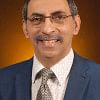
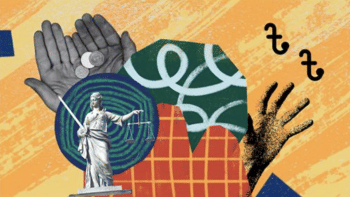
 For all latest news, follow The Daily Star's Google News channel.
For all latest news, follow The Daily Star's Google News channel. 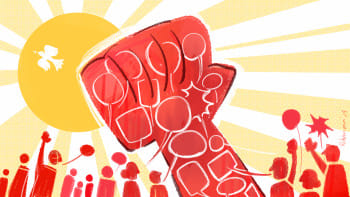



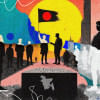
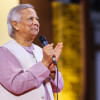
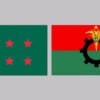



Comments